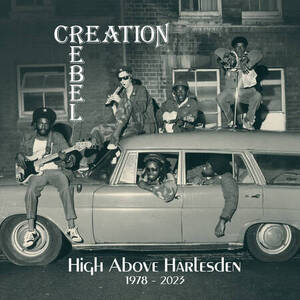Prodigy
Martin James
Sanctuary
“prodigy”
Prodigy has to be the most biased unofficial biography I’ve ever read. Not even the book’s press release (and nothing is more gushing than a press release) can match Martin James’ level of praise. “The best rock band of the decade”? “The best rock band in England”? “The best rock band in the world”? Apparently, the Prodigy are all three, and by the end of this career summary, you’ll have been told so dozens of times.
The book is actually a very effective, fluid and comprehensive sum-uppance of the group’s career. For a band whom I’ve never been particularly interested in, James managed to work me up into an mp3-grabbing frenzy as the Prodigy’s singles unfolded before my very eyes. The band’s history isn’t particularly interesting, but the book makes it feel weighty and worthwhile. And, of course, James is “friends” with them. We don’t really know how or why, although he did write their publicity bios for a while (that explains the saccharine interludes, then). Whether this is a good or a bad thing depends on how you look at the book – as a warm-hearted tribute from an unabashed admirer and confidant, or a dismally biased excuse to relive the author’s raver/fanboy past and come to the conclusion (by default) that the Prodigy are the greatest thing to have ever happened to music (like, ever).
There’s one problem that persists no matter which angle you view Prodigy from – Martin James can’t write. If James’ editor had taken a scalpel to his work and spared us the descriptive interludes that meet us every dozen pages or so, brimming with clumsy similes and forced emotion, then maybe this would have read like a standard journalistic tome; but the combination of sickly sweet “I love this band” gushing and the use of rudimentary decorative language makes wading through Prodigy’s 300 pages a real chore. (Opening paragraph: “The Toyota 4×4 people carrier moves through the snarled-up traffic of West London. All around, the chaos of the afternoon melds with the choking pollution to lend a claustrophobic intensity to the day. The heat is rising, temperatures are flaring and the whole of London seems to be hell-bent on rage.” Now multiply. Page after page.)
The book’s highlight is its condensed summary of British rave culture on the cusp of the 1990s. The first couple of chapters are almost a history of rave that just happen to be viewed through the eyes of a Prodigy fan, which is more varied and less nauseating than the full-blown sermons on the group’s virtues. James has been a part of the music scene in the U.K for long enough to know what he’s talking about, and his own personal involvement as a raver helps considerably.
When Prodigy was first released 5 years ago (it’s expanded a great deal since then, by the way, and the existing sections have been rewritten) it was deemed ‘a fan’s book’ by Q. Nothing’s changed: there’s not enough objectivity and a severe lack of judicious editing makes the pace drag. A high school essay on “Why I love the Prodigy”? Success. A serious analysis of an important band? Not quite.
Sanctuary Publishing: http://www.sanctuarypublishing.com












